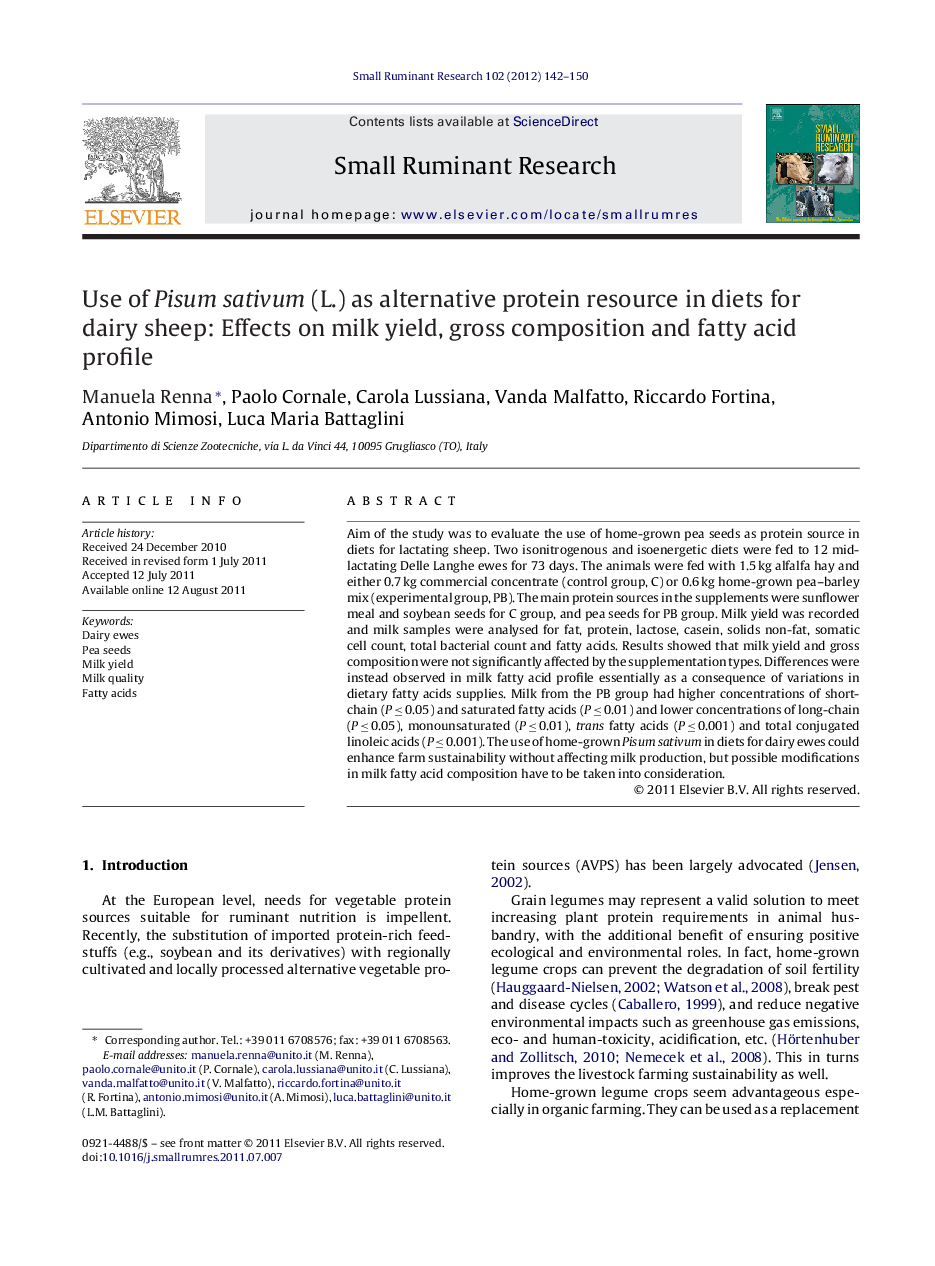| Article ID | Journal | Published Year | Pages | File Type |
|---|---|---|---|---|
| 5796350 | Small Ruminant Research | 2012 | 9 Pages |
Aim of the study was to evaluate the use of home-grown pea seeds as protein source in diets for lactating sheep. Two isonitrogenous and isoenergetic diets were fed to 12 mid-lactating Delle Langhe ewes for 73 days. The animals were fed with 1.5 kg alfalfa hay and either 0.7 kg commercial concentrate (control group, C) or 0.6 kg home-grown pea-barley mix (experimental group, PB). The main protein sources in the supplements were sunflower meal and soybean seeds for C group, and pea seeds for PB group. Milk yield was recorded and milk samples were analysed for fat, protein, lactose, casein, solids non-fat, somatic cell count, total bacterial count and fatty acids. Results showed that milk yield and gross composition were not significantly affected by the supplementation types. Differences were instead observed in milk fatty acid profile essentially as a consequence of variations in dietary fatty acids supplies. Milk from the PB group had higher concentrations of short-chain (P â¤Â 0.05) and saturated fatty acids (P â¤Â 0.01) and lower concentrations of long-chain (P â¤Â 0.05), monounsaturated (P â¤Â 0.01), trans fatty acids (P â¤Â 0.001) and total conjugated linoleic acids (P â¤Â 0.001). The use of home-grown Pisum sativum in diets for dairy ewes could enhance farm sustainability without affecting milk production, but possible modifications in milk fatty acid composition have to be taken into consideration.
